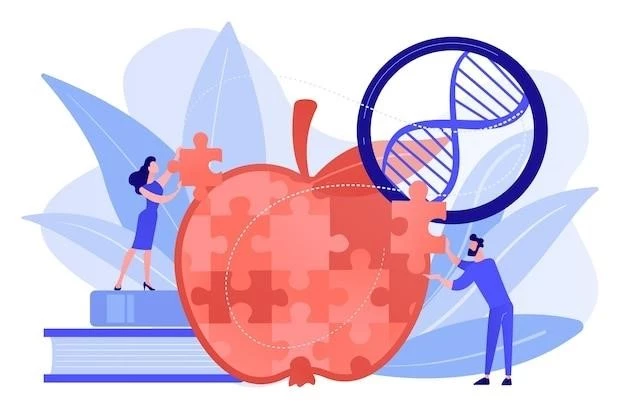CAPOS Syndrome
Understanding CAPOS Syndrome
Genetic Causes and Inheritance
Treatment Approaches
Coping with CAPOS Syndrome
Latest Research and Comparative Analysis
Resources and Support
Prognosis and Long-Term Outlook
Understanding CAPOS Syndrome
CAPOS Syndrome is a rare genetic disorder characterized by early-onset episodes of ataxia‚ weakness‚ and optic atrophy․ These symptoms typically appear in childhood and worsen over time‚ impacting an individual’s motor skills‚ vision‚ and overall quality of life․ The name CAPOS stands for Cerebellar Ataxia‚ Areflexia‚ Pes Cavus‚ Optic Atrophy‚ and Sensorineural Deafness‚ reflecting the key clinical features of the syndrome․ Diagnosis is based on observing these symptoms in combination with genetic testing to confirm mutations in the ATP1A3 gene․ Understanding the underlying genetic cause is crucial in managing the condition and developing targeted treatment approaches․ Stay informed about the latest research to better understand CAPOS Syndrome and its impact on affected individuals and families․

Genetic Causes and Inheritance
CAPOS Syndrome is caused by mutations in the ATP1A3 gene‚ which provides instructions for making a protein essential for maintaining the normal functioning of nerve cells․ These mutations lead to the dysfunction of the sodium-potassium pump‚ affecting the transmission of signals between nerve cells․ The syndrome follows an autosomal dominant inheritance pattern‚ meaning an affected individual has a 50% chance of passing the mutated gene to their offspring․ Understanding the genetic basis of CAPOS Syndrome is key in providing accurate diagnoses‚ genetic counseling‚ and potentially exploring gene-targeted therapies in the future․ Research into the specific genetic mechanisms involved continues to advance our understanding of this rare neurological disorder․
Treatment Approaches
Currently‚ there is no specific cure for CAPOS Syndrome‚ and treatment focuses on managing symptoms and enhancing quality of life․ Therapies may include physical and occupational therapy to address motor impairments‚ visual aids for optic atrophy‚ and hearing devices for sensorineural deafness․ Additionally‚ medications such as acetazolamide and carbonic anhydrase inhibitors have been explored for their potential benefits in symptom management․ Individualized treatment plans are essential‚ considering the varied nature and progression of symptoms in CAPOS Syndrome․ Collaborating with a multidisciplinary healthcare team can help optimize care and support individuals in managing their condition effectively․
Coping with CAPOS Syndrome
Living with CAPOS Syndrome can present unique challenges for both individuals affected and their families․ Developing coping strategies and maintaining a positive outlook are crucial aspects of navigating daily life with this rare condition․ Connecting with support groups‚ online communities‚ and healthcare providers can offer valuable emotional support‚ information sharing‚ and encouragement․ Embracing adaptive technologies and assistive devices can also help individuals with CAPOS Syndrome enhance their independence and quality of life․ Remember‚ each individual’s journey with CAPOS Syndrome is unique‚ and seeking support from various sources can make a significant difference in coping with the challenges posed by this neurological disorder․
Latest Research and Comparative Analysis
Ongoing research into CAPOS Syndrome continues to provide valuable insights into the underlying mechanisms‚ potential treatments‚ and ways to improve the quality of life for affected individuals․ Comparative analysis with other neurological disorders helps researchers better understand the unique aspects of CAPOS Syndrome and develop targeted interventions․ Recent studies have highlighted the importance of early diagnosis‚ multidisciplinary care‚ and gene-specific therapies in managing this rare condition․ By staying informed about the latest advancements in research and comparing findings across different neurological disorders‚ we can strive towards enhancing our knowledge and improving outcomes for individuals living with CAPOS Syndrome;
Resources and Support
For individuals and families affected by CAPOS Syndrome‚ access to resources and support networks is vital․ Seek out organizations dedicated to rare genetic disorders‚ neurological conditions‚ or specific to CAPOS Syndrome for information‚ guidance‚ and community connection․ Online forums‚ advocacy groups‚ and social media platforms can also serve as valuable sources of support and a place to share experiences with others facing similar challenges․ Additionally‚ collaborating with healthcare professionals‚ genetic counselors‚ and specialists can provide personalized care plans and access to relevant services․ Remember‚ you are not alone on this journey‚ and seeking support can make a positive impact on the well-being of those affected by CAPOS Syndrome․
Prognosis and Long-Term Outlook
The prognosis for individuals with CAPOS Syndrome can vary depending on the severity of symptoms and individual responses to treatment interventions․ While the condition is progressive‚ early diagnosis and comprehensive care can help manage symptoms and improve quality of life․ Long-term outlooks may involve ongoing monitoring‚ adaptation of treatment plans‚ and addressing evolving needs over time․ Research advancements continue to shed light on potential therapeutic options and management strategies that may influence long-term outcomes․ By staying informed‚ accessing appropriate support‚ and actively engaging in care‚ individuals with CAPOS Syndrome can navigate the challenges associated with the condition and work towards a fulfilling and supported future․
